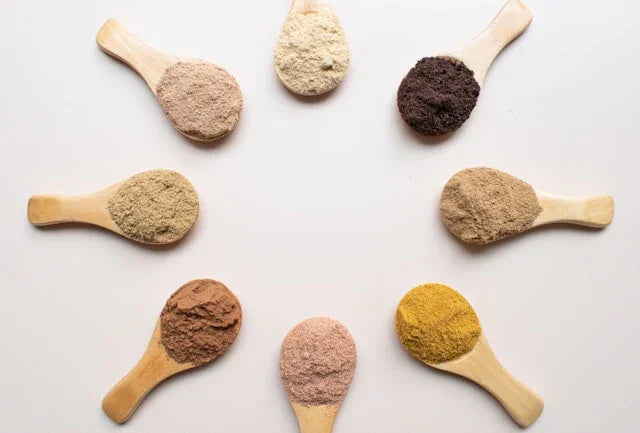
WHAT THE WHEY: The Complete Beginner's Guide to Whey Protein
If you’ve ever stepped foot in a gym or browsed the health aisle of a supermarket, you’ve probably encountered whey protein. But what exactly is whey protein, and how can it benefit you? In this...
If you’ve ever stepped foot in a gym or browsed the health aisle of a supermarket, you’ve probably encountered whey protein. But what exactly is whey protein, and how can it benefit you? In this comprehensive guide, we’ll explore everything you need to know about whey protein, using Muscle Club Protein as our example to illustrate its benefits, usage, and effectiveness.
Table of Contents
- What is Whey Protein?
- Types of Whey Protein
- Benefits of Whey Protein
- How to Choose the Right Whey Protein
- How to Use Whey Protein
- Muscle Club Protein: A Case Study
- Common Myths about Whey Protein
- FAQs
1. What is Whey Protein?
Whey protein is a high-quality protein derived from milk during the cheese-making process. It is a complete protein, meaning it contains all nine essential amino acids necessary for human dietary needs. Whey protein is popular among athletes, bodybuilders, and fitness enthusiasts for its ability to promote muscle growth and recovery.
2. Types of Whey Protein
There are three main types of whey protein:
- Whey Protein Concentrate (WPC): Contains low levels of fat and carbohydrates. The protein content can range from 30% to 90% depending on the concentration.
- Whey Protein Isolate (WPI): Processed to remove fat and lactose, resulting in a protein content of 90% or higher.
- Whey Protein Hydrolysate (WPH): Predigested protein, which means it has already undergone partial hydrolysis – a process necessary for the body to absorb protein. This type is often used in medical protein supplements and infant formulas due to its improved digestibility.
3. Benefits of Whey Protein
Whey protein offers numerous health benefits, including:
- Muscle Growth: Provides the necessary building blocks for muscle repair and growth.
- Weight Management: Can help with weight loss by promoting a feeling of fullness and reducing appetite.
- Improved Nutrition: Offers a high-quality source of protein for those who may have dietary restrictions or increased protein needs.
- Enhanced Recovery: Helps reduce muscle fatigue and soreness after intense exercise.
4. How to Choose the Right Whey Protein
When selecting a whey protein supplement, consider the following factors:
- Protein Content: Ensure the protein per serving aligns with your dietary goals.
- Ingredients: Look for a product with minimal additives and preservatives.
- Taste and Mixability: Choose a flavor you enjoy and a product that mixes well with liquids.
- Brand Reputation: Opt for reputable brands with positive reviews and transparent labeling.
5. How to Use Whey Protein
Whey protein is versatile and can be used in various ways:
- Post-Workout Shake: Mix with water or milk for a quick recovery drink.
- Meal Replacement: Combine with fruits and vegetables for a nutrient-dense smoothie.
- Baking: Add to recipes like pancakes, muffins, or energy bars to boost protein content.
6. Muscle Club Protein: A Case Study
Muscle Club Protein is an excellent example of a high-quality whey protein supplement. Here’s why it stands out:
- High Protein Content: Each serving contains 25 grams of protein, making it ideal for muscle repair and growth.
- Clean Ingredients: Muscle Club Protein is free from artificial additives, ensuring you get a pure and natural product.
- Great Taste: Available in various flavors, it caters to different taste preferences without compromising on quality.
- Easy to Mix: Known for its smooth texture, Muscle Club Protein blends easily with both water and milk, making it convenient for shakes and smoothies.
7. Common Myths about Whey Protein
- Myth 1: Whey Protein Causes Kidney Damage: In healthy individuals, there is no evidence that high protein intake from supplements causes kidney damage.
- Myth 2: Whey Protein Makes Women Bulky: Protein alone doesn’t cause bulkiness; it’s a combination of diet, exercise, and genetics.
- Myth 3: All Whey Proteins Are the Same: Quality, source, and processing methods can vary significantly between brands.
8. FAQs
Q: When is the best time to take whey protein? A: Post-workout is ideal for muscle recovery, but it can also be taken any time of the day to meet protein needs.
Q: Can I take whey protein if I’m lactose intolerant? A: Whey protein isolate has minimal lactose and may be suitable for those with lactose intolerance.
Q: How much whey protein should I consume daily? A: It depends on your fitness goals, body weight, and dietary protein intake. Generally, 1-2 scoops per day is sufficient for most people.
Whether you're a seasoned athlete or just starting your fitness journey, incorporating whey protein into your diet can help you achieve your goals. Muscle Club Protein provides a reliable and effective option, ensuring you get the best quality protein to support your muscle growth and recovery.
Stay healthy, stay strong, and remember – it’s all about the whey!

